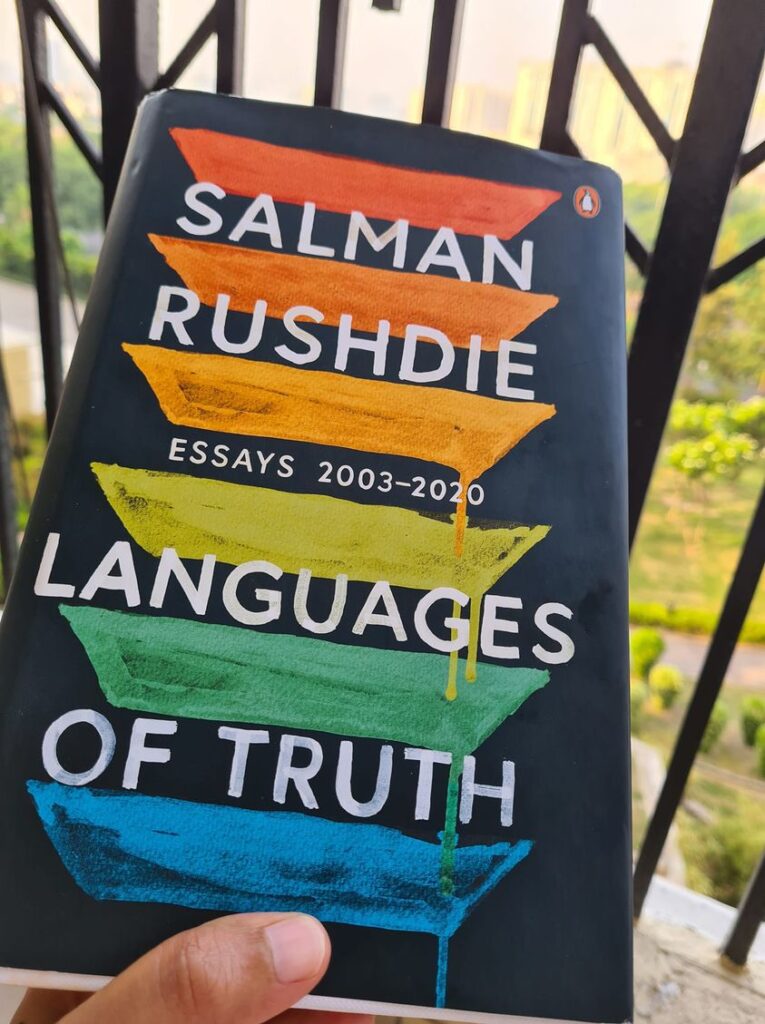Salman Rushdie’s “Languages of Truth: Essays 2003-2020)

Salman Rushdie’s new book, Languages Of Truth, is a wonderful collection of essays published between 2003-2020. Once you start reading it, you don’t want to finish reading it. All the essays have been revised for this edition.
There is so much to share from it. Here is an extract from the Arthur Miller Lecture, PEN World Voices Festival 2012.
***
I’m here, I guess,, to talk about censorship, but no writer ever really wants to talk about censorship. Writers want to talk about creation, and censorship is anti-creation, negative energy, un-creqtion, the bringing into bring or non-being, or, to use Tom Stoppard’s descriptions death, ‘The absence of presence. Censorship is the thing that stops you doing what you want to do, and what writers want to talk about is what they do, not what stops them doing it.
…
Liberty is the air we breathe, and we live in a part of the world where, imperfect as the supply is, it is nevertheless freely available, ….Imperfectly free, imperfectly breathable, but when it is breathable and free we don’t need to make a song and a dance about it. We take it for granted and get on with our day. And at night, as we fall asleep, we assume we will be free tomorrow, because we were free today.
The creative act requires not only freedom but also this assumption of freedom. If creative artists worry if they will still be free tomorrow, then they will not be free today. If they are afraid of the consequences of their choice of subjects or of their treatments of those subjects, then their choices will not be determined by talent but by fear. If we are not confident of our freedom, then we are not free. The air supply is turned off, and we cannot breathe.
And, even worse than that, when censorship intrudes on art, then it becomes the subject; the art becomes ‘censored art’, and that is how the world sees and understands it. The censor labels the work immoral, or blasphemous, or pornographic, or controversial, and those words are forever hung like albatrosses around the necks if those cursed mariners, the censored works. The attack on the work does more than define the work; in a sense, for the general public, it becomes the work.
***

No Comments